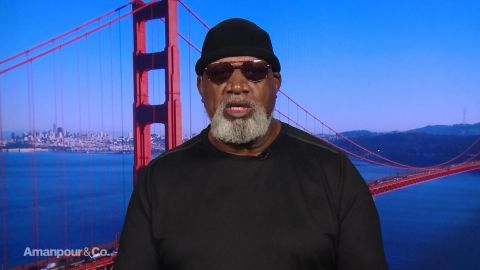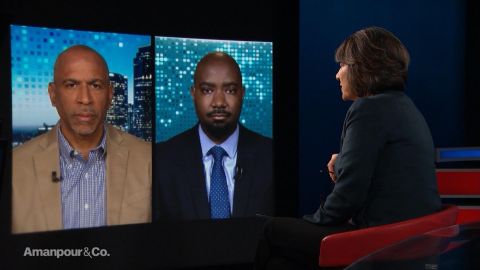Read Transcript EXPAND
CHRISTIANE AMANPOUR: This is quite an amazing phenomenon. You’ve got hundreds of thousands of teachers in different states striking and they’ve been doing so for quite a long time. Is there — has there as the anything like it? Is this sort of unprecedented?
PEDRO NOGUERA, DISTINGUISHED PROFESSOR OF EDUCATION, UCLA: It is a precedented. We have seen isolated actions in different communities across the country at various times but to have these many strikes in — this many different parts of the country at once is truly unprecedented and it’s a sign that many teachers are very frustrated at the State of Public Education.
AMANPOUR: And just to expand on that, it is connective, so to speak? They’re all striking for pretty much the same things and I know there are several issues that are at stake. But first, let me focus on conditions in the schools, in the classrooms. What are the conditions that they are particularly exercised about?
NOGUERA: So, the conditions vary. But since 2008, the Great Recession, many states began on a path of fiscal austerity, which took a particular toll on the schools and resulted in both cuts and major, you know, no raises in teacher salaries and the like. And what we see that many states haven’t — even if the Congress improved, have not reinvested in education. And so, consequently, teachers are frustrated, particularly in areas like the Bay Area where housing costs are so high and the cost of living has risen but salaries haven’t risen, that’s a huge factor. But economics is not the only issue driving these strikes. Nate Bowling, you are a teacher. A few years ago, you were declared Washington State’s best teacher and you yourself, in the last few months, have also being on strike, in the streets, out of your classroom. Flesh out for me was the professor has told us on a macrolevel. What does it mean to be a teacher in the public-school system today?
NATE BOWLING, 2016 WASHINGTON STATE TEACHER OF THE YEAR: There’s a two- track problem that I see in teaching. On track one, you have that basically almost all teachers are underpaid and overworked and asked to a job that they don’t feel they’re valued by society. And then within the profession, your highly effective educators, they have options. And so, for me and for my colleagues, if you’re a highly effective educator, that means you can go to other career paths that are less stressful and pay much better.
AMANPOUR: So, how has that affected you? I mean, have you been tempted to leave the school? Have other of your colleagues left? I mean, how has it impacted you and also the school?
BOWLING: I love the job of teaching and I choose to stay in the classroom. But if you look at my Teacher of the Year cohort, we have four finalists. Of our four finalists, two of them are not doing policy work in Washington D.C., one’s a member of Congress and the remaining two who stayed in the classroom both walked a picket line. And so, if the Teachers of the Year are frustrated, imagine what it’s like being one of the anonymous teachers who’s toiling in a low income urban or rural school in America.
About This Episode EXPAND
Christiane Amanpour speaks with Pedro Noguera & Nate Bowling about the recent teacher strikes across America; and actress Gillian Anderson about her wide-spanning career. Michel Martin speaks with civil rights activist Harry Edwards about his career in civil rights activism in sports.
LEARN MORE


